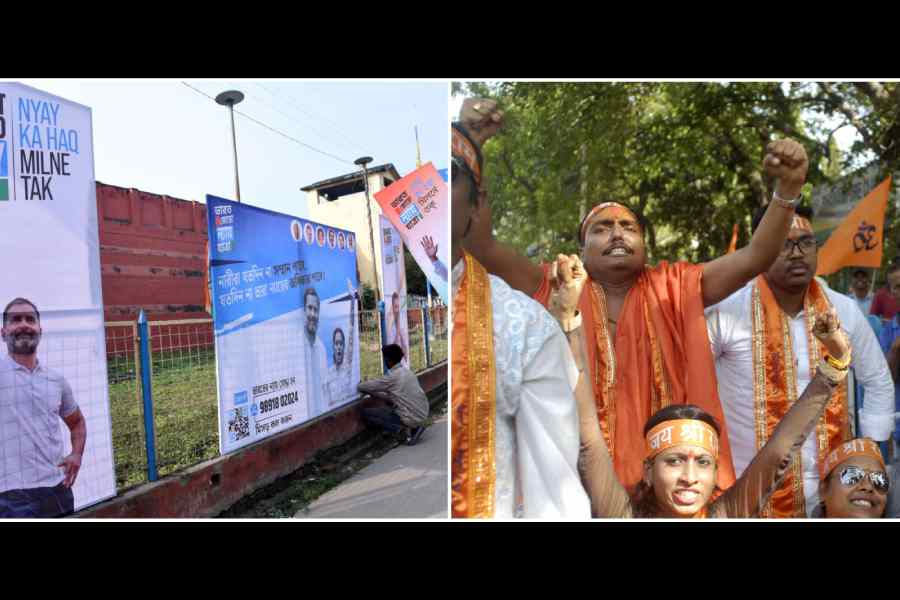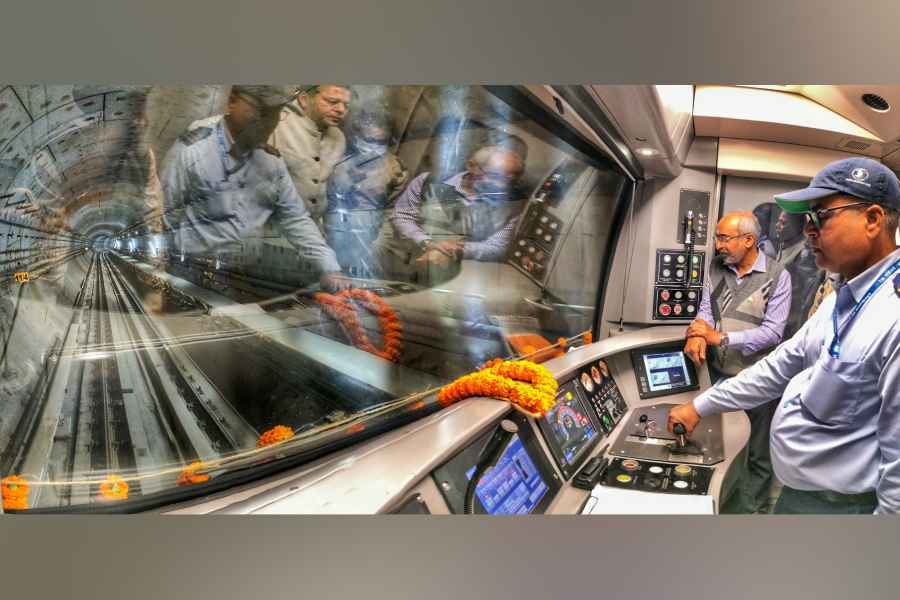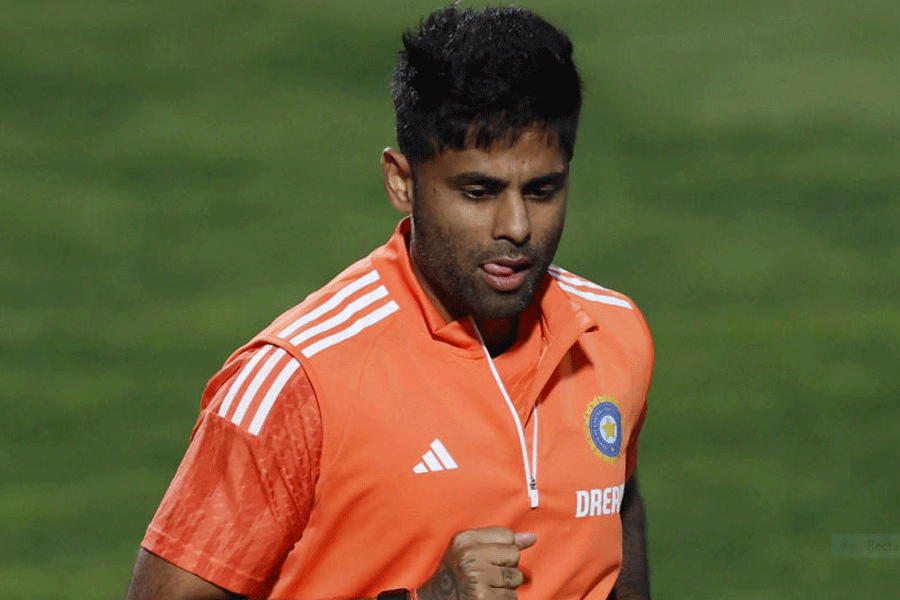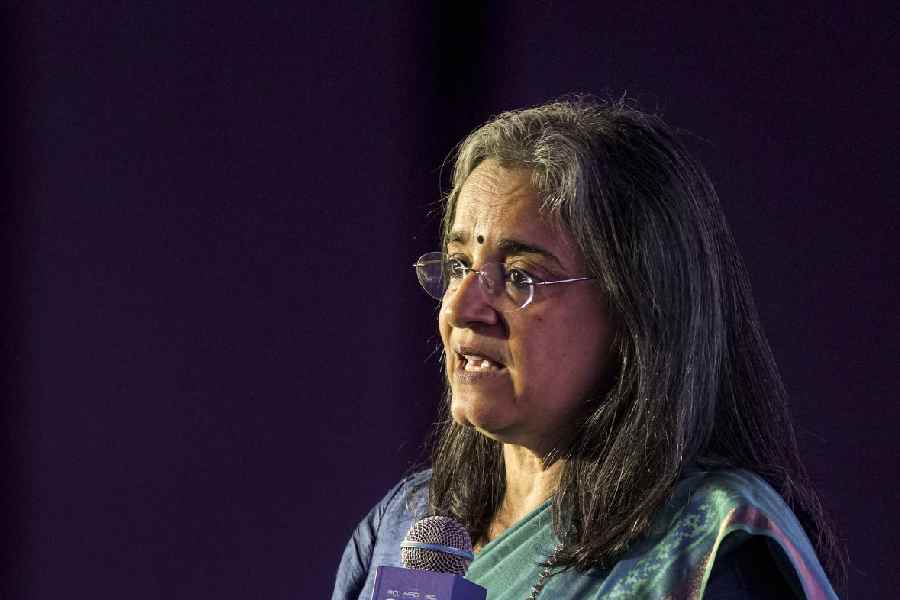The contemporary moment in Indian democracy is extremely interesting. Hindutva-driven nationalism, which has established itself as the dominant electoral narrative, has not lost its political charm. The Bharatiya Janata Party establishment, it seems, does not envisage the relative failure of the party to reach the majority mark in this year’s general election as an ideological defeat. Its aggressive push for a Uniform Civil Code and the controversial reform package for Waqf institutions underline the fact that the party would evoke Hindutva as a defining feature of its politics in the near future.
This, however, does not mean that the electoral-ideological hegemony of Hindutva is still unquestionable. In the last three years, an alternative narrative of politics, which revolves around the idea of nyay or justice, has also taken a slightly substantial form. The success of the Opposition, especially the performance of the INDIA grouping, has shown that justice as a metaphor for politics is going to dominate future electoral configurations.
Despite this very clear polarisation of ideas, the nature of political transactions has not changed. The BJP is not in a position to offer any new version of cultural nationalism to make Hindutva more accommodating and inclusive. The non-BJP parties, on the other hand, are not fully confident to assert social and economic justice as a future agenda for electoral mobilisation. As a result, the BJP wants to go back to its basics — the Indianisation of Muslims to revive Hindutva while the Opposition is going to rely on the conventional, unproblematic, and safe discourse of social justice simply to avoid any direct ideological confrontation with the BJP.
The 2024 election results are very relevant here. CSDS-Lokniti post-poll surveys show that issues such as nationalism, national pride, and the need for a decisive leader continued to survive at the grassroots level in this election. However, the socio-economic disparities and caste-based exploitation emerged as determining factors for the average voters. It means that the people at the bottom level of society expect the political class to produce a discourse of inclusive nationalism, which can accommodate the question of injustice and inequalities. I take two examples to illustrate this point.
The battle for Hindutva/Hinduism is my first example. The BJP’s adherence to its old-style politics, in a way, has encouraged an interesting struggle inside the party. A set of ambitious and aspiring leaders are competing with one another to prove their radical Hindu credentials. The Assam chief minister’s recent flood-jihad remark and the administrative order to display names on food stalls during the kanwar yatra in Uttar Pradesh demonstrate the fact that the anti-Muslim posture has become an accepted norm for upward political mobility. It is possible that the UCC debate and the Waqf bill are going to further intensify this competition within the BJP. But this radical political attitude goes against the popular expectation of the masses, including those who eventually voted for the BJP.
The non-BJP parties do not have a clear ethical-political stand on Muslim presence. They evoke the term, Hinduism, to reject Hindutva as an exclusive political project of the BJP. This line of argument is relevant. Rahul Gandhi’s recent speeches in Parliament, no doubt, were quite effective. He raised the questions of communal hatred and the misuse of Hindu religion in a powerful manner. This rather indirect criticism of Hindutva, can, however, only become meaningful if a principled position is worked out on serious issues such as the marginalisation of Pasmanda Muslim communities and the lynching of innocent Muslim individuals. It is worth noting here that the Congress manifesto of 2024 has tried to develop an alternative vision of secular inclusiveness to tackle such issues. The party establishment is expected to take this valuable political document as a point of reference to evolve arguments and strategies. There is an assumption that Hindu sentiments will be hurt if Muslim well-being is highlighted by any party. This assumption has become a form of political correctness. The Opposition is expected to get rid of this hypothetical fear if it is really serious about evolving futuristic resolutions.
The recent Supreme Court judgment on thesubcategorisation of reservation for scheduled caste/scheduled tribe communities is my second example. This judgment poses a different kind of challenge for the political class, especially in the present context. Hindutva-driven nationalism as a narrative can only become persuasive if it accommodates SCs/STs as legitimate categories in its wider, Hindu unity framework. The subcategorisation of these administrative units has the potential to destabilise this configuration. This has been one of the reasons why the Hindutva groups remain apprehensive about the idea of a caste census. The BJP, as expected, has taken a very delicate position on this issue. Party leaders, especially its Dalit MPs, have criticised the court’s observation on the possibility of introducing a creamy layer among SC/ST groups for the purpose of reservation. However, the core theme of the judgment — the subcategorisation of SCs/STs — has not been given any direct response so far.
The Congress, on the other hand, has opposed both, the subcategorisation as well as the creamy-layer proposal, in a more direct fashion. The party has also alleged that the BJP wants to finish the reservation system for Dalits. However, the Congress’s calculated response to the Supreme Court judgment does not go well with the social justice schema, which it wants to develop as an alternative narrative of politics. The purpose of a caste census, broadly speaking, is to find out the most backward and marginalised social groups for the sake of affirmative action. The caste census, in this sense, is a necessary precondition for any possible restructuring of the affirmative action framework, including the subcategorisation of existing administrative categories. The Congress’s position stems from practical compulsions. The party does not want to ignore the significance of Dalit votes and, for that purpose, it has to oppose the idea of subcategorisation.
These two examples, the ongoing battle for Hindutva and the politically desirable attitude on affirmative action, clearly show that Indian democracy is on the cusp of an interesting transformation. The existing forms of politics — ideas, actions, and resolves — have not become completely insignificant; but the emerging aspirations of the masses have not yet found a clear and decisive political manifestation.
Hilal Ahmed is Associate Professor, CSDS, New Delhi











